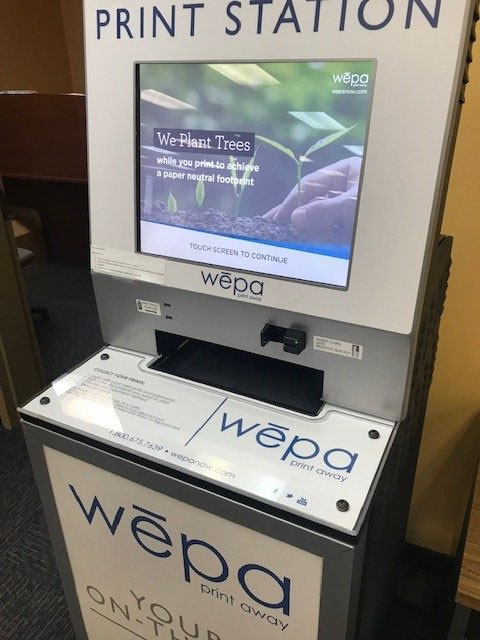WEPA Accounts Cut to Lower Budget
 Many returning Averett students were in for a surprise when they went to print their first assignment of the year. Instead of the ten dollars worth of “WEPA bucks” in each student’s account, there were none. At first, no one knew the reasoning behind this change. Rumors of “the WEPA system being down” and student’s accounts being “hacked” spread around campus.
Many returning Averett students were in for a surprise when they went to print their first assignment of the year. Instead of the ten dollars worth of “WEPA bucks” in each student’s account, there were none. At first, no one knew the reasoning behind this change. Rumors of “the WEPA system being down” and student’s accounts being “hacked” spread around campus.
A meeting between Aaron Howell, Vice President for Business and Finance, and representatives of the Student Government Association finally revealed the reason behind the empty accounts. In an attempt to counter the rising cost of tuition, the administration cut student WEPA accounts.
“The expense of WEPA in the subsidy is only one of the many things we look at every year when we are setting the budget… we thought, ‘How do we keep the costs as low as we can?’, and this is one area,” said Howell.
In fact, the accounts were defunded as part of a four year plan devised to try and limit the rate of tuition increase. When the program began four years ago, student accounts started with $25.The following year, balances were decreased to $15. Two years later, they were decreased to ten dollars before ultimately being reduced to zero. Unfortunately for students, that is how the situation will remain for now.
“This year’s budget has been set. If we were to try and back track and change this we would have to find something else that’s as impactful, or more impactful for the students to cut,” said Howell.
While those involved with Averett’s financial planning knew of the plan to phase out WEPA accounts, it was not disclosed to the student body or faculty in the four years. This breakdown in communication has understandably left students confused and upset.
“Nobody knew about [funding being cut], I think it’s really really inconsiderate. There’s not a class here where you won’t have to turn in an assignment,” said junior, Paul Dennis Jr.
As a college student, turning in assignments is an everyday part of life. While the University utilizes Canvas as an online option for students to submit homework, many professors still prefer that assignments be printed and turned in in class. When students were allotted funds for WEPA, this was a non issue.
“It has put a burden on a lot of students. I would like to know why they did this, and didn’t give us a warning,” said junior, Cameryn Carelock.
The elimination of this subsidy has put students and faculty into a difficult situation. As neither students nor faculty were given advance notice of the changes, both parties have had to adapt in response. Moving forward, students and faculty must work together to find an efficient way of submitting assignments.
“We need to be in tune to the digital age of things, as I develop the communication to campus, I’m certainly going to interact with Dr. Fullope [Vice President for Academic Affairs and Student Success] and see if at a faculty meeting we can address this issue,” said Howell.
While printing has long been the preferred method for students to submit assignments, the capabilities to do so digitally are an option.
“The solution was not exactly what we wanted, but we do understand business, and that we ultimately couldn’t have the WEPA bucks right now. At the end of the day it’s all about the academic success of the students, and if a student is unable to print, but they are able to send an email. I feel that should be the viable solution,” said junior class president, D’ante Lambright.
While switching entirely to digital assignment submission is a proposed solution, a lack of communication between administration and students remains.
“Students came into the year thinking they had WEPA bucks. Communication should have been key. They should have sent an email before school started just so students like myself could prepare,” said Lambright.
While the decision to cut WEPA accounts cannot be undone this year, the administration is aware that the situation was mishandled.
“I think it goes back to being more impactful, maybe that we didn’t communicate then that ten dollars…It’s important for us to understand the concerns of the students,” said Howell.
Moving forward from this incident, faculty and students alike must strive to adapt to these changes. No matter the circumstances, student success should remain at the forefront of attention. The administration’s methods for reducing tuition, should not distract from the desire to facilitate student success.
